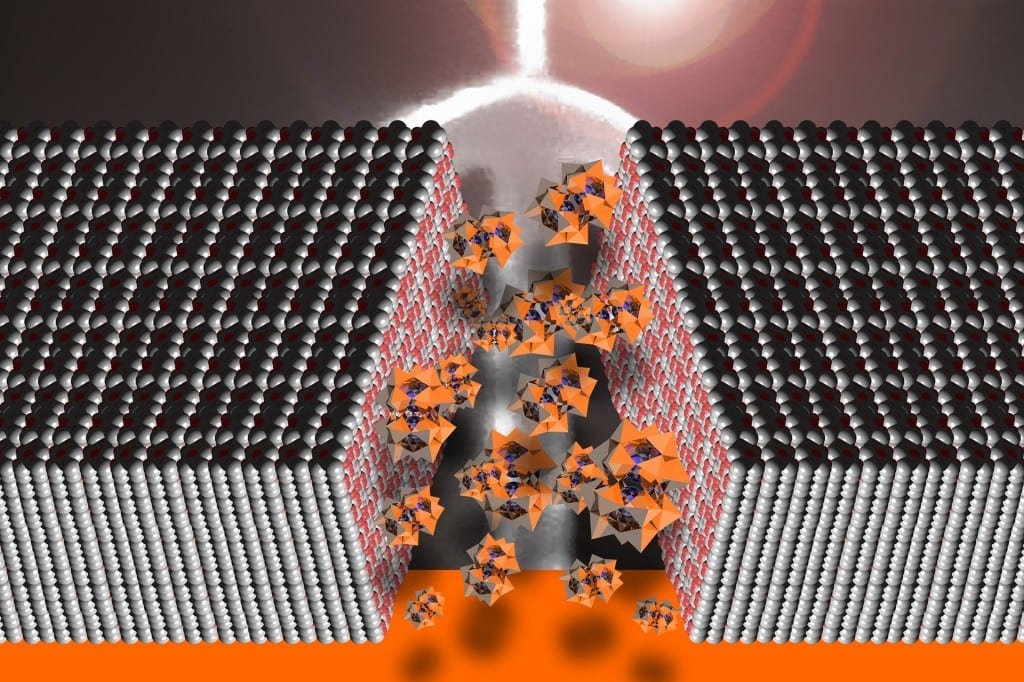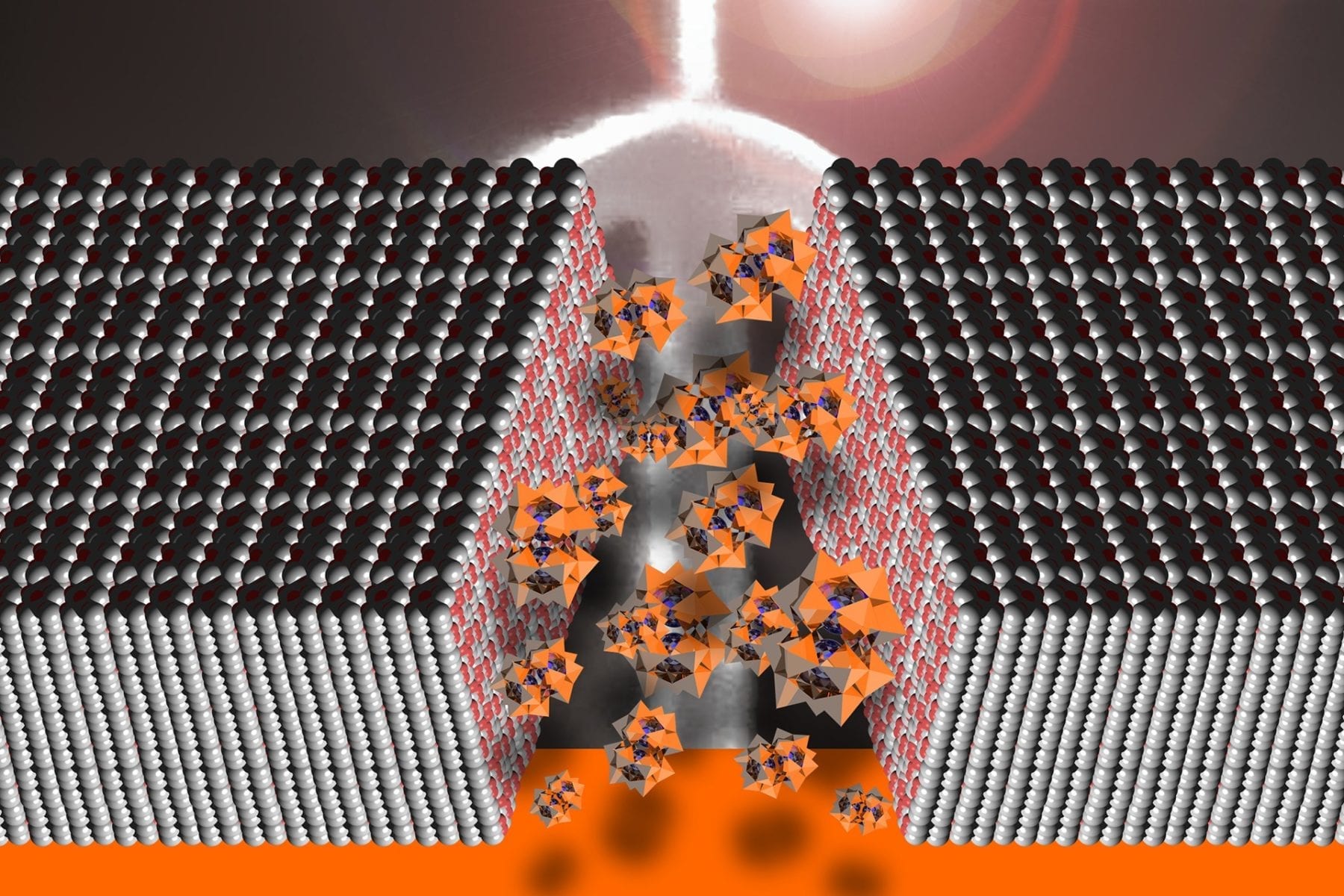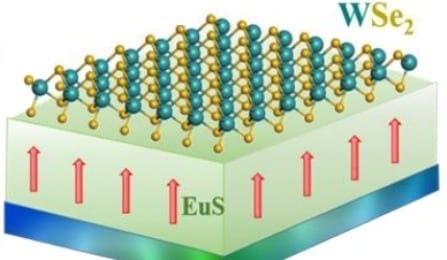
Single molecule technology could finally break Moore’s law and allow gadgets to store huge amounts of data on tiny flash storage cards. Chemists behind the new molecules say the new technology could help solve the looming flash storage dilemma.
Flash memory, used in nearly all of our favourite gadgets, is hampered by the physical limits of data cells, which currently use metal-oxide-semiconductor (MOS) components. These are almost impossible to manufacture at a scale below ten nanometers, setting an upper limit on the how much can be stored.
Scientists have now claimed a breakthrough in the use of individual molecules as a replacement for conventional data-storage components. The benefits are massive, or rather very small, with huge amounts of data potentially being stored on tiny flash memory units.
The team from the University of Glasgow and Rovira i Virgili University in Spain have successfully designed and synthesised new molecules that work in a similar way to transistors. The new metal-oxide clusters, known as polyoxometalates (POMs), are detailed in the journal Nature.
Professor Lee Cronin from the University of Glasgow, who led the research team, said that the new technology had incredible potential.
“The incorporation of molecules will allow us to further scale down and extend Moore’s law and potentially even go beyond this with multiple bits of storage per single molecule,” he told WIRED.co.uk.
“One major benefit of the POMs we’ve created is that it’s possible to fabricate them with devices which are already widely-used in industry, so they can be adopted as new forms of flash memory without requiring production lines to be expensively overhauled.”
The Latest on: Single molecule tech
[google_news title=”” keyword=”Single molecule tech” num_posts=”10″ blurb_length=”0″ show_thumb=”left”]
via Google News
The Latest on: Single molecule tech
- New Quantum Sensing Scheme Could Lead to Enhanced High-Precision Nanoscopic Techniqueson May 6, 2024 at 6:23 am
Researchers from the University of Portsmouth have unveiled a quantum sensing scheme that achieves the pinnacle of quantum sensitivity in measuring the transverse displacement between two interfering ...
- Allozymes puts its accelerated enzymatics to work on a data and AI play, raising $15Mon May 3, 2024 at 10:20 am
The company’s core tech hasn’t changed ... like finding a molecule to match a need rather than improving an existing process. The enzyme-tailoring service Allozymes has been doing is to be called ...
- Nanotechnology Newson May 1, 2024 at 5:00 pm
Like a Nanoscopic Moon Lander': Scientists Unlock Secret of How Pyramidal Molecules Move Across Surfaces Apr. 25, 2024 — Scientists have watched a molecule move across a graphite surface in ...
- Tracking the dynamics of biomolecules with optofluidic antennason April 29, 2024 at 5:00 pm
Through a clever modification, the new optofluidic antennas are able to collect photons emitted by a single biomolecule in solution with extremely high efficiency (85%).
- Media Molecule’s Next Game is a New IPon April 24, 2024 at 2:00 pm
Media Molecule is working on a new game and it will be a completely new IP according to a recent job listing. The developer, known for feel-good franchises like LittleBigPlanet and Tearaway ...
- Single-Molecule Transistor Using Quantum Interferenceon April 15, 2024 at 5:00 pm
A new technical paper titled “Quantum interference enhances the performance of single-molecule transistors” was published by researchers at Queen Mary University of London, University of Oxford, ...
- Single-Molecule Localization Microscopy: Surpassing the Diffraction Limit for Nanoscale Imagingon April 15, 2024 at 1:09 pm
What is Single-Molecule Localization Microscopy? Single-molecule localization microscopy (SMLM) is a super-resolution imaging technique that enables the visualization of biological structures and ...
- Saatva vs Molecule: Which is the best cooling mattress topper for you?on April 4, 2024 at 5:00 pm
These 3" bed toppers both use memory foam infused with cooling tech ... the Molecule CopperWELL Topper doesn't even have a cover or anchor straps. Instead, the topper consists of a single layer ...
- Expanding Proteomic Horizons with Single-Molecule Proteome and Proteoform Analysison March 26, 2024 at 9:00 am
Single-molecule protein analysis is key to enabling a wide range of advancements in proteomics, including increased sensitivity, reproducibility, and scale. We are working to deliver comprehensive ...
- Single-Molecule Imaging: Unveiling the Secrets of Life at the Nanoscaleon March 20, 2024 at 3:15 am
What is Single-Molecule Imaging? Single-molecule imaging is a powerful technique that allows researchers to visualize and study individual molecules in real-time. By overcoming the limitations of ...
via Bing News











